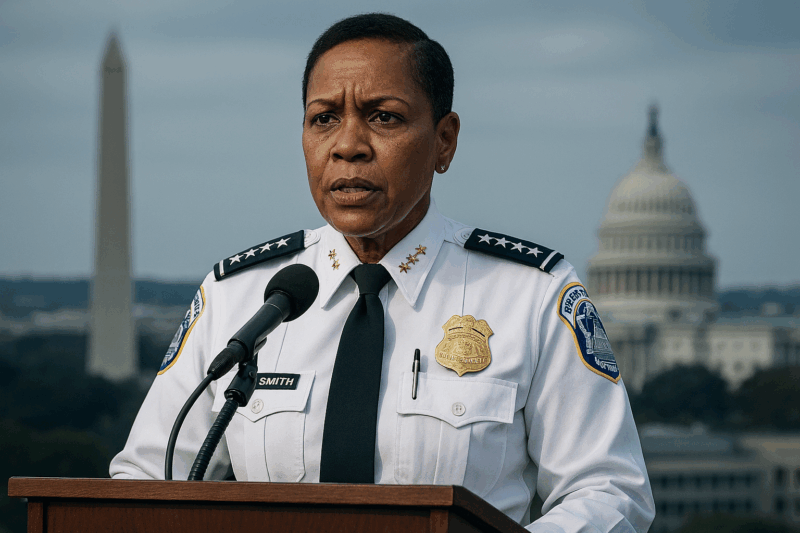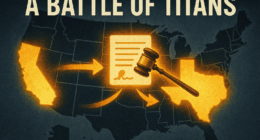Washington DC’s police chief, Pamela Smith, has retained her command after a heated legal dispute with the Trump administration. The conflict arose when US Attorney General Pam Bondi tried to replace Smith with DEA head Terry Cole as an emergency police commissioner. However, after an emergency court hearing, the justice department backed down. This allowed Smith to keep her position while Cole acts as an intermediary.
The move highlights tensions between federal and local authorities. Violent crime in DC has actually dropped to a 30-year low in recent years. Yet, the administration cited safety concerns to justify intervention. What does this mean for the balance of power in the nation’s capital? As debates continue, residents watch closely.
The Dispute Over Police Control
The Trump administration issued an order late Thursday. It aimed to give Cole full powers over the DC Metropolitan Police Department. Smith would need approval for any directives.
DC officials quickly sued to block this. Mayor Muriel Bowser and Attorney General Brian Schwalb called it unlawful. They argued it threatened public safety.
By Friday, a deal was reached in court. The original order was rescinded. Now, Cole serves as a link between the administration and local police. Smith remains the DC police chief in command.
Background on Federal Intervention
DC has unique status as the federal district. The Home Rule Act from the 1970s allows some federal oversight for certain purposes.
Trump’s team used this to deploy forces. They sent hundreds of National Guard members and federal agents. Actions include clearing homeless encampments and running checkpoints.
This marks a rare federalization of local police. Past examples include deployments during high crime in 1989. Recent ones followed events like the 2021 Capitol riot.
Reactions from Key Officials
Officials voiced strong opinions. Bowser, a Democrat, labeled it an authoritarian push. She stressed there was no emergency.
Schwalb welcomed the resolution on control. But he noted immigration arguments would continue next week.
Bondi defended the moves. She accused critics of opposing safety efforts. Smith, with decades in law enforcement, called the initial order a threat to order.
Broader Impact on Public Safety
The intervention has visible effects. DEA agents patrol tourist sites and nightlife areas. They report 189 arrests, including gun offenses.
Yet, data shows crime declining. BBC Verify notes a 26% drop in violent crime from 2024. Preliminary 2025 figures suggest more decreases.
This raises questions about necessity. Federal presence may strain local governance. It could affect trust between police and communities.
Key Facts Table
| Fact | Details |
|---|---|
| DC Police Chief | Pamela Smith retains command. |
| Initial Replacement | DEA head Terry Cole named emergency commissioner. |
| Resolution | Cole now intermediary; original order rescinded. |
| Deployments | 800 National Guard troops, 500 federal agents. |
| Crime Stats | 26% drop in violent crime (2024); 30-year low. |
| Ongoing Issues | Immigration policy debates next week. |
Conclusion
The resolution ensures the DC police chief maintains authority amid federal pressures. It underscores ongoing federal-local tensions in Washington. While safety measures proceed, crime data questions their urgency.






